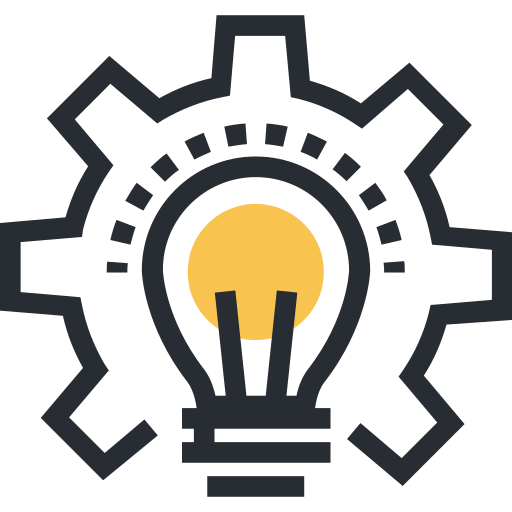What is Industrial Management
Industrial Management Master’s degree program is a 1-year program that allows to study alongside a full-time job. The average student in the program is a 30-40+ years old engineer or team leader, who wants to make a career leap from engineering toward management positions.Our graduates gain a degree of a ‘Master of Engineering’ in Industrial Management (level 7 of EQF, European Qualification Framework,corresponding to diplomi-insinööri).
Industrial Management Master’s degree program started in 2006 as a forerunner of Metropolia’s Master’s level education. The program has been developed in collaboration with leading industrial companies and is updated annually. You can choose between specialization Management of Industrial Services or Data Driven Business.Our warm welcome to join a wide network of peers studying Industrial Management – from the leading industrial companies such as Kone, Outotec, Konecranes, Metso, Valmet, Schneider Electric, GE, ABB, Ericsson, Telia, Elisa, Enfo, and many others, including public organizations and peers representing various SMEs.
How you will study
The courses are conducted via contact teaching, self-study, team work, class discussions, business simulations, workshops and seminars. The studies are integrated into real-life business projects that allow you to study part-time while working.At the very heart of your studies will be the Master’s Thesis, a business development project conducted in a grounded evidence based manner, typically addressing a real-life business challenge of your employer organization.
Our agile learning mode offers you support whilst you are on the move:
• Interactive lectures, expert workshops & class discussions
• Face-to-face consultancy with experienced faculty members, and opportunity for individual advice, development and help
• Multichannel learning with a variety of modes, with course materials available online
• No examinations, instead practical assignments and discussion leader sessions
• Active peer community of learners.
You will be instructed by experienced staff and experts from both business and academia. See below who your instructors will be. Please note that teaching is mainly contact teaching on campus.
Studies are offered at the Metropolia Karamalmi campus in Espoo.
Content of Industrial Management Master’s Program
The degree consists of Professional Studies (30 ECTS credits) and Master’s thesis project (30 ECTS credits). Studies consist of lectures, hands-on working with selected tools, workshops, assignments, and projects as well as independent studying.The program is divided into two fields of specialization which is the students freely choose from: Management of Industrial Services, and Data Driven Business.
Common professional studies lay the foundation on which the specialization is built on.
Choosing a field of specialization
The program is divided into two fields of specialization: Management of Industrial Services and Data Driven Business. Students can freely choose between specializations. A field of specialization is started only if enough students choose the option.
Management of Industrial Services
In today’s business environment services are not limited only to pure service organizations, instead all types of organizations must be able to create a sustainable competitive advantage in order succeed in its business. If the customers’ internal value creating processes are understood a company can develop a total integrated offering which serves their customers’ value creating processes and suits to the competitive situation of most companies today. Companies may still be considering a step to a service focus in their business or they already have an offering comprising services, and in both cases, there is a need for competent developers, who can take the initiative to create new services or develop existing ones further.
Data Driven Business
The amount of data is sky-rocketing but the number individuals, who can interpret the data is growing at a much lower pace. The companies should base their decision making on data instead of a hunch or feeling. Today’s businesses call for professionals who can combine financial data, process data and data external to the company in the development of the competitive advantages. Especially, being able to capture skills in modern analysis methods and tools makes a difference.
See Industrial Management Curriculum in Studyguide
Structure of studies
The degree consists of Professional Studies (30 ECTS credits) completed in the autumn and spring semester. The autumn semester is dedicated for Professional Studies and the spring semester is reserved for the Master´s thesis (30 ECTS credits). Support from student’s employer and integration with her/his work contributes to the learning experience. Student has the right to complete the studies in accordance with the curriculum for the degree in question and with the approved personal study plan. Metropolia organizes the Master’s degree studies and study guidance in such a way that the student can aim to complete the studies in one academic year. However, normally students achieve their degree in 1,5 years since the students are responsible for acquiring the partner organization for their thesis development work themselves.
Professional Studies (30 ECTS)
Common professional studies for all students: 15 ECTS
• Strategy, Management and Leadership
• Performance Management
• Business Process Development
Specialisation studies: 10 ECTS
Management of Industrial Services
• Customer Oriented Service Business
• Supply Chain Management
Data Driven Business
• Business Data Analysis and Visualization
• Supporting Business Processes with ERP Systems (SAP)
Elective Studies: select 5 ECTS
• Technical Sales
• Working in International Contexts
• From other specialisation
• …
Final project
The student concentrates on working individually and carries out a Master’s thesis project (30 ECTS). The project deepens his/her knowledge of his/her professional expertise. The student learns to utilize applied research methods, evaluate his/her own expertise and complements those fields of expertise in an appropriate manner.During carrying out the Master’s thesis project the student applies the data search methods relevant to his/her own field of study, adapts previously acquired information with new information and applies to solve a real-world business problem. He/she will learn to perceive details when part of a larger context.
The degree consists of Professional Studies (30 ECTS credits) and Master’s thesis project (30 ECTS credits).
Studies consist of lectures, hands-on working with selected tools, workshops, assignments, and projects as well as independent studying. The program is divided into two fields of specialization which is the students freely choose from: Management of Industrial Services, and Data Driven Business. Studies are conducted the Metropolia Karamalmi campus in Espoo. Common professional studies lay the foundation on which the specialization is built on.
Management of Industrial Services
In today’s business environment services are not limited only to pure service organizations, instead all types of organizations must be able to create a sustainable competitive advantage in order succeed in its business. If the customers’ internal value creating processes are understood a company can develop a total integrated offering which serves their customers’ value creating processes and suits to the competitive situation of most companies today. Companies may still be considering a step to a service focus in their business or they already have an offering comprising services, and in both cases, there is a need for competent developers, who can take the initiative to create new services or develop existing ones further.
Data Driven Business
The amount of data is sky-rocketing but the number individuals, who can interpret the data is growing at a much lower pace. The companies should base their decision making on data instead of a hunch or feeling. Today’s businesses call for professionals who can combine financial data, process data and data external to the company in the development of the competitive advantages. Especially, being able to capture skills in modern analysis methods and tools makes a difference.
































Leave a Reply